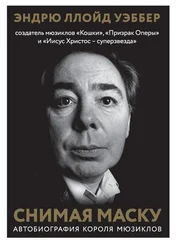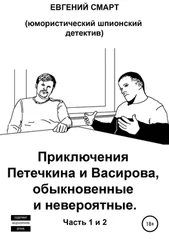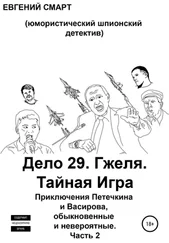Рильке Р.М. Избранные стихотворения. — М.: Эксмо, 2006.
Рильке Р.М. Проза поэта. — М.: Вагриус, 2001.
Скотт Дж. Благими намерениями государства. — М.: Университетская книга, 2011.
Смит А. Исследование о природе и причинах богатства наций. — М.: Эксмо, 2007.
Airports council International. Airport Noise. — ACI Position Brief, 2009. http://www.aci.aero/aci/aci/file/Position%20Briefs/position%20brief_AIRCRAFT_NOISE_2009.pdf
Altamura M., Elvevag B., Campi G., De Salvia M., Marasco D., Ricci A., Bellomo A. Toward Scale-free Like Behavior Under Increasing Cognitive Load // Complexity, 2012. Vol. 18 (1). P. 38–43.
Altenmüller E., Wiesendanger M., Kesselring J. Music, Motor Control and the Brain. — New York: Oxford University Press, 2006.
Anderson C. Elon Musk’s Mission to Mars // Wired Science. 2012. 21 Oct. http://www.wired.com/wiredscience/2012/10/ff-elon-musk-qa/
Anticevic A., Cole M.W., Murray J.D., Corlett P.R., Wang X.-J., Krystal J.H. The Role of Default Network Deactivation in Cognition and Disease // Trends in Cognitive Sciences, 2012. Vol. 16 (12). P. 584–592.
Arden R., Chavez R.S., Grazioplene R., Jung R.E. Neuroimaging Creativity: A Psychometric View // Behavioural Brain Research, 2010. Vol. 214 (2). P. 143–156.
Are Ants Vulnerable to Climate Change? // East Tennessean. 2012. 25 Apr. http://www.easttennessean.com/news/are-ants-vulnerable-to-climate-change-1.2860631#.UJLXiIa9zWc
Aron A., Aron E., Coups E. Statistics for Psychology. 5th Ed. — Pearson, 2009.
Barton M., Ullah I., Bergin S.M., Mitasova H., Sarjoughian H. Looking for the Future in the Past: Long-term Change in Socioecological Systems // Ecological Modelling, 2012. Vol. 241. P. 42–53.
Benner M.J., Tushman M.L. Exploitation, Exploration, and Process Management: The Productivity Dilemma Revisited // The Academy of Management Review, 2003. Vol. 28 (2). P. 238–256.
Benzi R. Stochastic Resonance: From Climate to Biology // Nonlinear Processes in Geophysics, 2010. Vol. 17. P. 431–441. http://www.nonlin-processes-geophys.net/17/431/2010/npg-17-431-2010.pdf
Binnewijzend M., Schoonheim M.M., Sanz-Arigita E., Wink A.M., van der Flier W.M., Tolboom N., Adriaanse S.M., Damoseaux S.M., Scheltens P., van Berchel B.N., Barkhof F. Resting-state fMRI Changes in Alzheimer’s Disease and Mild Cognitive Impairment // Neurobiology of Aging, 2012. Vol. 33 (9). P. 2018–2028.
Bohm David. On Creativity. — London: Routledge, 2004.
Bronson P., Merryman A. The Creativity Crisis (Cover Story) // Newsweek. 2010. 19 Jul. Vol. 156, I. 3. P. 44–49.
Brown P., Warner-Smith P. The Taylorisation of family time: an effective strategy in the struggle to ‘manage’ work and life? // Annals of Leisure Research, 2005. Vol. 8 (2/3). P. 75–90.
Buckner R.L., Vincent J.L. Unrest at Rest: Default Activity and Spontaneous Network Correlations // NeuroImage, 2007. Vol. 37 (4). P. 1091–1096. http://www.nmr.mgh.harvard.edu/uphp/vincent/Vincent_files2/science_files/publications_files/2007_Buckner_Vincent_NeuroImage.pdf
Bullmore E., Sporns O. Complex Brain Networks: Graph Theoretical Analysis of Structural and Functional Systems // Nature Reviews Neuroscience, 2009. Vol. 10 (3). P. 186–198. http://ccn.ucla.edu/wiki/images/6/6a/Bullmore_Sporns_NatRevNeuro_2009.pdf
Burke R., Fiksenbaum L. Work Motivations, Work Outcomes, and Health: Passion Versus Addiction // Journal of Business Ethics, 2009. Vol. 84 (2). P. 257–263.
Buzsaki G. Rhythms of the Brain — New York: Oxford University Press, 2011. http://f3.tiera.ru/2/B_Biology/Buzsaki%20G.%20Rhythms%20of%20the%20brain%20(OUP,%202006)(ISBN%200195301064)(465s)_B_.pdf
Cagliuso N.V. The Risks of Terrorism // Journal of Homeland Security and Emergency Management, 2005. Vol. 2 (2). P. 1–5.
Cairney P. Complexity Theory in Political Science and Public Policy // Political Studies Review, 2012. Vol. 10 (3). P. 346–358.
Carhart-Harris R.L., Friston K.J. The Default-mode, Ego-functions and Free-energy: a Neurobiological Account of Freudian Ideas // Brain, 2010. Vol. 133 (4). P. 1265–1283. http://brain.oxfordjournals.org/content/133/4/1265.full.pdf+html
Charlton B.G. The Busy Shall Inherit the Earth: The Evolution from ‘Hard Work’ to ‘Busyness’ in Modern Science and Society // Medical Hypotheses, 2006. Vol. 67 (5). P. 1003–1005.
Chomsky N., Kall R. On Media, Healthcare, Economics, Jobs, Dangers of Human Intelligence, Part I // ZNet. 2012. 10 Dec. http://www.zcommunications.org/on-media-healthcare-economics-jobs-dangers-of-human-intelligence-part-i-by-noam-chomsky.html
Colonnese M., Khazipov R. Spontaneous Activity in Developing Sensory Circuits: Implications for Resting State fMRI // NeuroImage, 2012. Vol. 62 (4). P. 2212–2221.
Complexity at Large // Complexity, 2012. Vol. 17 (6). P. 1–4.
Culture Matters: How Values Shape Human Progress / Ed. by Harrison L.E., Huntington S.P. — New York: Basic Books, 2001.
Custers P. The Tasks of Keynesianism Today: Green New Deals As Transition Towards a Zero Growth Economy? // New Political Science, 2010. Vol. 32 (2). P. 173–191.
D’Argembeau A., Collette F., Van der Linden M., Laureys S., Del Fiore G., Degueldre C., Luxen A., Salmon E. Self-referential Reflective Activity and Its Relationship with Rest: a PET Study // NeuroImage, 2005. Vol. 25 (2). P. 616–624.
Das P., Calhoun V., Malhi G.S. Mentalizing in Male Schizophrenia Patients Is Compromised by Virtue of Dysfunctional Connectivity Between Task-positive and Task-negative Networks // Schizophrenia Research, 2012. Vol. 140 (1–3). P. 51–58.
Deco G., Rolls E.T., Romo R. Stochastic Dynamics as a Principle of Brain Function // Progress in Neurobiology, 2009. Vol. 88 (1). P. 1–16.
Dehaene S. Reading in the Brain: The Science and Evolution of a Human Invention. — Viking Adult, 2009.
Dennett D. Freedom Evolves. — New York: Penguin Books, 2004.
Di Simplicio M., Norbury R., Harmer C.J. Short-term Antidepressant Administration Reduces Negative Self-referential Processing in the Medial Prefrontal Cortex in Subjects at Risk for Depression // Molecular Psychiatry, 2011. Vol. 17 (5). P. 503–510.
Douthat R. A World Without Work // The New York Times. 2013. 23 Feb. http://www.nytimes.com/2013/02/24/opinion/sunday/douthat-a-world-without-work.html?_r=0
Doyle M., Furnham A. The Distracting Effects of Music on the Cognitive Test Performance of Creative and Non-creative Individuals // Thinking Skills and Creativity, 2012. Vol. 7 (1). P. 1–7.
Durr V. [untitled] // The German Quarterly, 2005. Vol. 78 (1) P. 114–115.
Eastwood J.D., Frischen A., Fenske M.J., Smilek D. The Unengaged Mind Defining Boredom in Terms of Attention // Perspectives on Psychological Science, 2012. Vol. 7 (5). P. 482–495.
Falconer J. The Importance of Scheduling Downtime // Stepcase Lifehack. 2012. 20 Aug. http://www.lifehack.org/articles/productivity/ the-importance-of-scheduling-downtime.html
Farnsworth K.D., Lyashevska O., Fung T. Functional Complexity: The Source of Value in Biodiversity // Ecological Complexity, 2012. Vol. 11. P. 46–52.
Fleck J.I., Kounios J. Intuition, Creativity, and Unconscious Aspects of Problem Solving / In: Encyclopedia of Consciousness. — Oxford: Academic Press, 2009. P. 431–446.
Foster B.L., Dastjerdi M., Parvizi J. Neural Populations in Human Posteromedial Cortex Display Opposing Responses During Memory and Numerical Processing // Proceedings of the National Academy of Sciences, 2012. Vol. 109 (38). P. 15514–15519. http://www.pnas.org/content/109/38/15514.full
Frank B. Rilke’s the Panther // The Explicator, 2002. Vol. 61 (1). P. 31–33.
Читать дальше
Конец ознакомительного отрывка
Купить книгу



![Мишель Смарт - Эксклюзивное соблазнение [litres]](/books/401319/mishel-smart-eksklyuzivnoe-soblaznenie-litres-thumb.webp)


![Фрауке Шойнеманн - Генри Смарт и секрет золотого кубка [litres]](/books/430113/frauke-shojnemann-genri-smart-i-sekret-zolotogo-kub-thumb.webp)
![Фрауке Шойнеманн - Генри Смарт, пицца и магические сокровища [litres]](/books/433673/frauke-shojnemann-genri-smart-picca-i-magicheskie-s-thumb.webp)




